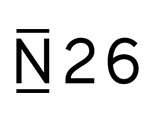Your total earnings (less allowable expenses) is your ‘ aggregate income’ (also referred to as your ‘net income’ or ‘adjusted profit’ figure), from which you make deductions to arrive at your ‘total income’. Allowances and reliefs are then deducted and the resultant figure is your ‘taxable income’, on which your social insurance (PRSI) contributions and government levies are calculated. From your total tax you may then deduct tax credits and reliefs. Note that from 6th April 2001, Ireland changed to a full tax credit system, whereby the value of tax allowances is the same for all taxpayers.
Allowable expenses are those incurred ‘wholly and exclusively for the purposes of the trade’ (e.g. insurance, accountancy). Business entertainment isn’t allowable, although expenditure on staff entertainment can be deducted for tax purposes. Similarly, while depreciation in general isn’t an allowable expense, certain capital allowances are tax deductible. It’s generally more difficult to justify expenses if you’re an employee than if you’re self-employed, but the Revenue Commissioners publish a list of flat rate expenses allowable in different kinds of employment.
Deductions
Tax deductions include covenants, interest on certain types of loans and retirement annuity contributions. The maximum allowance for covenants, with the exception of those to permanently incapacitated people, is 5 per cent of total income. Qualifying interest includes loans to invest in companies or partnerships where certain conditions are met, e.g. the company mustn’t deal in land and you must be a full or part-time employee and have a minimum share holding in the company. Retirement annuity contributions up to 15 per cent of gross income are also tax deductible.
Allowances
Each individual is entitled to a basic personal tax allowance, in addition to which there are allowances for single-parent and widowed parent families. Income tax allowances can also be claimed in respect of children and dependent relatives, age, employment, rent, medical expenses, imported cars, as well as for certain kinds of investment, capital expenditure and trade union membership subscriptions. There are special allowances for the blind and those who work abroad. On the other hand, if you receive certain benefits with your employment (‘benefits-in-kind’), you may be liable for additional tax.
Credits
Mortgage Interest
You’re entitled to claim tax relief on the interest charged on your mortgage, although the amount you can claim has been reduced in recent years and is likely to fall further. As a result of recent government measures designed to make residential property a less attractive investment (and so curb rising prices), tax relief is no longer available on the interest paid on borrowings to purchase or build property for letting. Note, however, that non-Irish nationals can buy Irish property for investment and claim mortgage interest relief at home. There’s also restricted tax relief on loans for repairs or improvements to residential property.
Private Rented Accommodation
Rent paid for private accommodation qualifies for tax relief.
Renewal Schemes
As part of the government’s ongoing urban and rural renewal programme, tax credits are available on residential properties in designated areas that were constructed or refurbished during a set period, meet certain size and quality requirements, and are let for at least ten years. The credits (usually called ‘Section 23’ or ‘Section 48’ with reference to the relevant section of the Finance Act) can be offset against the tax due on rental income.
Eligible schemes are announced from time to time and usually have a limited life. The first such scheme applied to specified urban areas and a more recent one to certain seaside resorts; both are now more or less at an end, but there’s an ongoing rural renewal scheme centred on the west and north (e.g. Counties Leitrim and Cavan). Details of these schemes can be obtained from the Revenue Commissioners (Tel. 01-878 0000).
Insurance
You’re entitled to tax relief at 20 per cent on private health insurance premiums paid during the previous tax year (life insurance premiums are no longer tax deductible).
Local Authority Service Charges
The credit due on local authority service charges is calculated according to the amount paid in the previous calendar year (i.e. 1st January to 31st December 2001 for the tax year 2002).
Other
Any personal income taxes paid in another country can also be deducted from your tax base under double taxation agreements. Note, however, that if you pay higher tax abroad than would have been paid in Ireland, you won’t receive a rebate from the Irish tax authorities!




